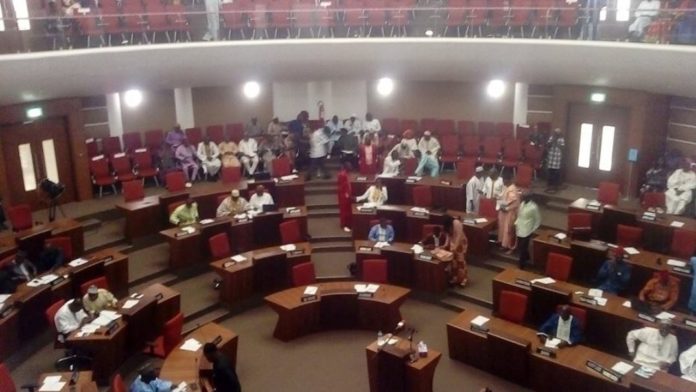QUESTION OF THE DAY
The Nation would recall that COVID- 19 has compelled the National Assembly to adjourn its regular Session pending advice to restore normal sessions.
However, the Assembly has been holding emergency sittings to fulfil constitutional mandates in order to strengthen the country’s resilience against the virus.
Since the State of Emergency declared on 26 March was required to last for 45 days, the President had the obligation to show his respect for parliament by bringing a motion for the extension of the state of emergency before it lapses.
Section 98 of The Constitution empowers the President to request for a sitting of the National Assembly to be summoned to discuss urgent state matters.
The President wrote to the Speaker on 12th May to summon a sitting.
On Friday 15th May, a meeting was convened. On Saturday 16th May the Attorney General and Minister of Justice introduced his motion for resolution to extend the state of Public Emergency and further affirm the regulations.
The motion was rejected. After the rejection some members wanted to introduce another motion .However Standing order 29 states that once a motion is accepted or rejected, one cannot bring another motion contrary to it on the same issue during a session unless the original motion is revoked or rescinded.
On Monday 18th May none of the Ministers were in the National Assembly building. Members were seen exchanging views on what happened and the implications.
The Speaker took note of the uncertainty and indecisive ness as to whether to adjourn sine die or meet to rescind the previous decision and hold the government accountable to its request. She relied on standing order 13(1) to adjourn to today to enable members to rethink the way forward.
Views are divided on when the Emergency will lapse. However, the rejection of the extension means that once the 45 days expires the emergency will lapse.
When it does the executive will have the power to declare another state of emergency that would last for 7 days if The National Assembly is in session.
If the National Assembly is not in Session it will last for 21 days.
The lessons are clear. The declaration of a state of emergency is just word on paper. What gives essence to the declaration are the regulations to be enforced.
Whether a resolution for the extension of a state of emergency proposes 10 days, 10 weeks or ten months section 34 Subsection 5 b states “any resolution nay be revoked at any time by a resolution supported by the votes of the majority of all the members of the National Assembly.”
Once The Emergency proclamation ceases to have effect,the regulations will also cease to have effect under section 5 of the Emergency powers Act.
Hence the National Assembly is not limited in its oversight role by the number of days it adds to the maintenance of a state of emergency and its regulations. The time it should give depends on what is reasonable and justifiable in putting material, human and financial resources into action to address the Pandemic.
This is how matters stand.



















